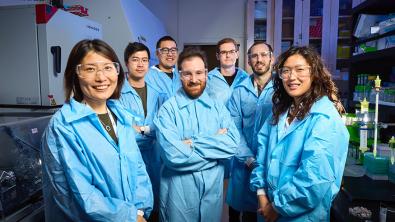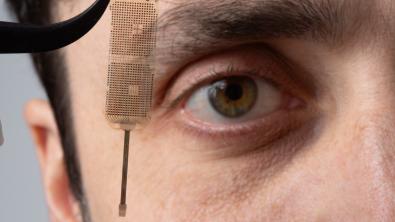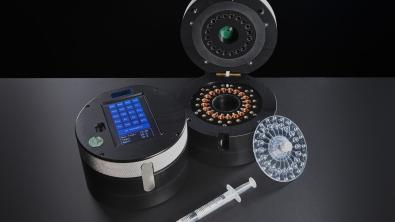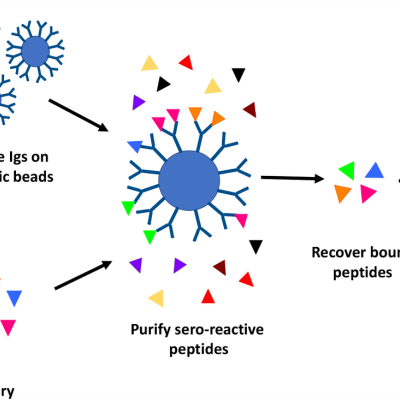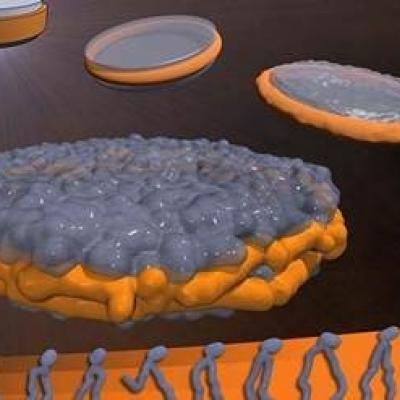This is a broad portfolio that includes all aspects of life sciences. Some of the representative areas are bioengineering (brain computer interface, chips to grow and monitor cellular activities, and bioprinting), vaccines and therapeutics (nanolipoprotein particles for the delivery of vaccines and drugs, carbon nanotubes for drug delivery, KRAS inhibitors, and anti-bacterial minerals), medical diagnostics (molecular diagnostics, point-of-care testing, imaging, and forensic), life science instrumentation (PCR instruments, rapid PCR, fluid partitioning, microfluidics, and biosensors), and methods for the extraction and purification of rare earth elements using lanmodulin and other natural/synthetic bacterial proteins.
Portfolio News and Multimedia
Rare-earth elements are essential for many electronic, energy and advanced defense technologies. A research collaboration between LLNL and Pennsylvania State University (Penn State) has generated a portfolio of intellectual property (IP), jointly owned by both organizations, that uses bacterial proteins to pick out critical metal ions.
LLNL has licensed its interest in the joint IP to advanced biochemistry start-up Alta Resource Technologies for commercialization of the resulting technology to transform mineral separation. Similarly, Penn State is negotiating a license agreement with Alta for its interest in the joint IP.
LLNL and neurotechnology company Canaery have developed an advanced nose-computer interface (NCI) capable of enhancing the ability of scent-detection animals to simultaneously identify contraband such as explosives and narcotics, as well as other types of important scents such as biomarkers for neurological and infectious diseases.
Nanofabrication of the implantable device is led by staff research engineer Travis Massey in LLNL’s Implantable Microsystems Group, and initially began under a Cooperative Research and Development Agreement (CRADA) through LLNL’s Innovation and Partnership’s Office (IPO). The work is now part of a strategic partnership between LLNL and Canaery.
Technology designed to aid on-the-field diagnostics for military applications is gaining a wider reach as Lawrence Livermore National Laboratory (LLNL) and BioVind, LLC achieved a milestone in their partnership: the exclusive licensing of LLNL pathogen diagnostics technology focused on oil and gas applications.
The technology, called BioID, is a rapid and portable molecular diagnostics platform that can detect up to 18 target DNA or RNA sequences from a single sample in 30 to 60 minutes. BioID uses an isothermal amplification technique to detect pathogen nucleic acid.

